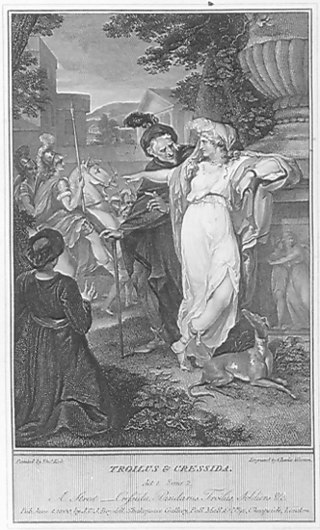Communitarianism is a philosophy that emphasizes the connection between the individual and the community. Its overriding philosophy is based on the belief that a person's social identity and personality are largely moulded by community relationships, with a smaller degree of development being placed on individualism. Although the community might be a family, communitarianism usually is understood, in the wider, philosophical sense, as a collection of interactions, among a community of people in a given place, or among a community who share an interest or who share a history. Communitarianism usually opposes extreme individualism and rejects extreme laissez-faire policies that deprioritize the stability of the overall community.
An auxiliary verb is a verb that adds functional or grammatical meaning to the clause in which it occurs, so as to express tense, aspect, modality, voice, emphasis, etc. Auxiliary verbs usually accompany an infinitive verb or a participle, which respectively provide the main semantic content of the clause. An example is the verb have in the sentence I have finished my lunch. Here, the auxiliary have helps to express the perfect aspect along with the participle, finished. Some sentences contain a chain of two or more auxiliary verbs. Auxiliary verbs are also called helping verbs, helper verbs, or (verbal) auxiliaries. Research has been conducted into split inflection in auxiliary verbs.

Pandarus or Pandar is a Trojan aristocrat who appears in stories about the Trojan War.

The Nolan Chart is a political spectrum diagram created by American libertarian activist David Nolan in 1969, charting political views along two axes, representing economic freedom and personal freedom. It expands political view analysis beyond the traditional one-dimensional left–right/progressive-conservative divide, positioning libertarianism outside the traditional spectrum.

The ectoderm is one of the three primary germ layers formed in early embryonic development. It is the outermost layer, and is superficial to the mesoderm and endoderm. It emerges and originates from the outer layer of germ cells. The word ectoderm comes from the Greek ektos meaning "outside", and derma meaning "skin".

A Mind Forever Voyaging (AMFV) is a 1985 interactive fiction game designed and implemented by Steve Meretzky and published by Infocom. The game was intended as a polemical critique of Ronald Reagan's politics.
People v. Freeman was a criminal prosecution of Harold Freeman, a producer and director of pornographic films, by the U.S. state of California. Freeman was charged in 1987 with pandering - procurement of persons "for the purpose of prostitution" - under section 266i of the Cal. Penal Code for hiring adult actors, which the prosecution characterized as pimping. The prosecution was part of an attempt by California to shut down the pornographic film industry. The prosecution's characterization was ultimately rejected on appeal by the California Supreme Court. Prior to this decision, pornographic films had often been shot in secret locations.
Defeatism is the acceptance of defeat without struggle, often with negative connotations. It can be linked to pessimism in psychology, and may sometimes be used synonymously with fatalism or determinism.

Political hip hop is a subgenre of hip hop music that was developed in the 1980s as a way of turning hip hop into a form of political activism. Political hip hop generally uses the medium of hip hop music to comment on sociopolitical issues and send political messages to inspire action, create social change, or to convince the listener of a particular worldview. It was inspired partially by politically-focused 1970s artists such as The Last Poets and Gil Scott-Heron, as well as the Black Power movement and revolutionary politics of the 1960s and 1970s. Various hip hop artists emerged in the late 1980s espousing political messages and providing social and political commentary with KRS-One and his group Boogie Down Productions and Public Enemy in particular establishing themselves as some of the first predominantly political hip hop groups with albums in 1988. Soon to follow in 1989 and following years were other Political rappers, or known as "Conscious rap" including such groups as X-Clan, Poor Righteous Teachers, Paris (rapper), Disposable Heroes of Hiphoprisy and others The genre has helped to create a new form of social expression for subordinate groups to speak about their exclusions, injustices, and lack of power.

Procuring, pimping, or pandering is the facilitation or provision of a prostitute or other sex worker in the arrangement of a sex act with a customer. A procurer, colloquially called a pimp or a madam or a brothel keeper, is an agent for prostitutes who collects part of their earnings. The procurer may receive this money in return for advertising services, physical protection, or for providing and possibly monopolizing a location where the prostitute may solicit clients. Like prostitution, the legality of certain actions of a madam or a pimp vary from one region to the next.

Joseph Wilhelm Eduard d’Alton was a German engraver and naturalist who was a native of Aquileia. He was the father of anatomist Johann Samuel Eduard d'Alton (1803–1854).

United States v. Williams, 553 U.S. 285 (2008), was a decision by the Supreme Court of the United States that a federal statute prohibiting the "pandering" of child pornography did not violate the First Amendment to the United States Constitution, even if a person charged under the code did in fact not possess child pornography with which to trade.

Christian Pander is a German footballer who plays as a left back. He is currently a free agent, having most recently served Hannover 96 of the Bundesliga. He is known for his powerful left-foot free-kicks and willingness to burst up the left wing.

Mark Andrew Robinson is an Australian politician who is a former Deputy Speaker of the Queensland Legislative Assembly. Since March 2009, he has held the seat of Oodgeroo in the Legislative Assembly for the Liberal National Party (LNP).
An anti-pornography movement in the United States has existed since before the 1969 Supreme Court decision of Stanley v. Georgia, which held that people could view whatever they wished in the privacy of their own homes, by establishing an implied "right to privacy" in U.S. law. This led President Lyndon B. Johnson, with the backing of Congress, to appoint a commission to study pornography. The anti-pornography movement seeks to maintain or restore restrictions and to increase or create restrictions on the production, sale or distribution of pornography.

Watch on the Rhine is a military science fiction novel by John Ringo and Tom Kratman, the seventh entry in Ringo's Legacy of the Aldenata series.

Pandar is a village in Zardeyn Rural District, Nir District, Taft County, Yazd Province, Iran. As of the 2006 census, its population was 330 across 92 families. Pandar is on the eastern slopes of Shirkooh Mountain. Alongside historic cities and in vast places in Iran, there are unknown villages that are an unmatched memory for the lasting effects of cultural heritage. Pandar Village is one of these lasting villages, which is on the hillside and beside the Yazd desert for many years, which is beautiful and has attracted many tourists. Pandar is a beautiful, mountainous place with numerous historical sites. According to the view of the botanical experts, the village has a treasure trove of medicinal herbs. The village is located six kilometers east of Nir and located on the northern side of the area of Poshtokh. Pandar is located in the vicinity of many villages and fields. The village of Shir Kuh is located in the southeast of Pandar, about 1 km away, Mahmoodabad farm in the south of Pandar, 1.5 km away, as well as the village of Mahdiabad and Golgazar farm (Golgodar), southwest of Pendar. Pander ends on the north to the mountain, stretching along them to Menashed, Nir, Yazd, Tazerjan and Dehbala.

The Pander P-1 and P-2 were close to-identical single engine Dutch sports aircraft with tandem seats and a parasol wing, first flying in 1929. Only two were built.











